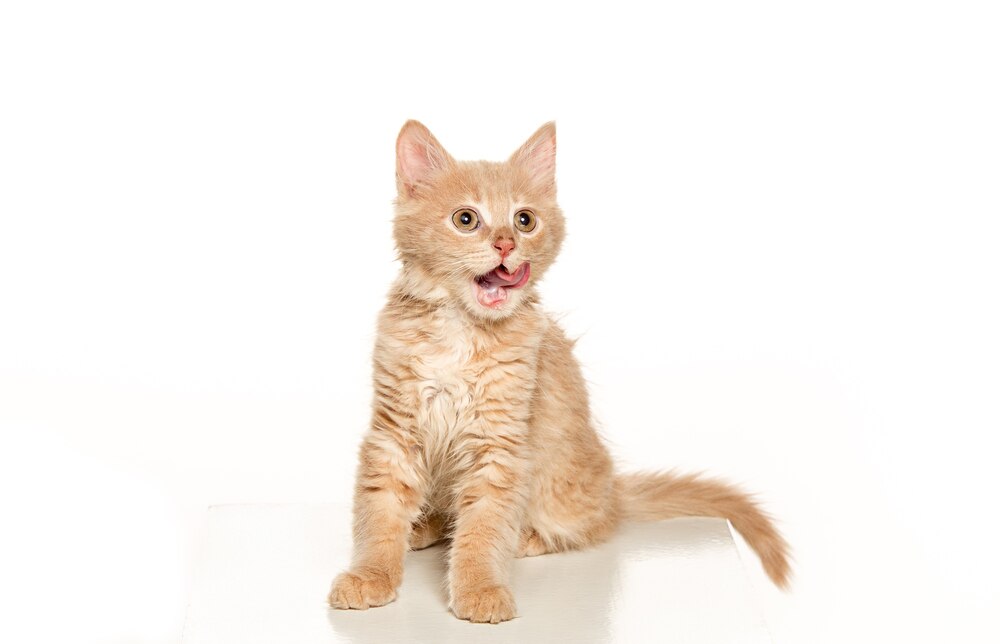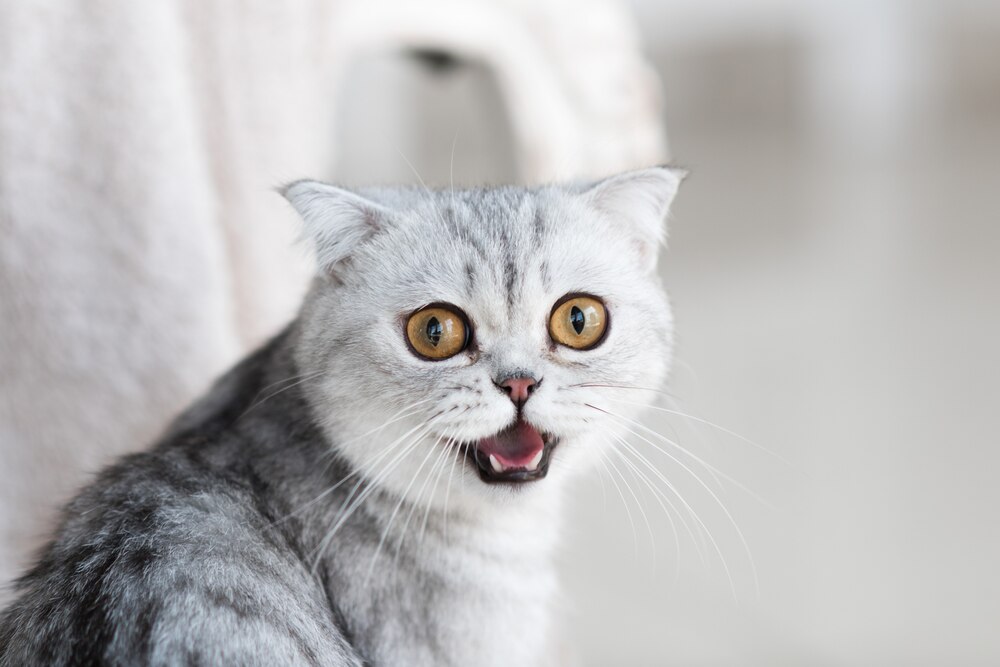Is your cat meowing incessantly and driving you crazy? Don’t worry, you’re not alone. Many cat owners have experienced this frustrating behavior and wondered why their furry friend won’t stop meowing. In this article, we will explore the top reasons why cats meow so much and provide effective solutions to help you put an end to the constant noise.
One possible reason for your cat’s excessive meowing is that they are trying to communicate with you. Cats are known for their vocal nature and use meowing as a way to express their needs and desires. It could be that your cat is hungry, thirsty, or simply seeking attention. By understanding the meaning behind their meows, you can better respond to their needs and reduce the frequency of their vocalizations.
Another reason for your cat’s constant meowing could be a sign of distress. Cats may meow excessively if they are in pain, feeling anxious, or experiencing any other form of discomfort. It is important to pay attention to any changes in their behavior or health and consult with a veterinarian if necessary.
To calm a meowing cat, there are several strategies you can try. Providing them with plenty of mental and physical stimulation, such as interactive toys and playtime, can help alleviate their need for attention. Creating a peaceful environment by reducing noise and stressors can also help calm their meowing. Additionally, establishing a consistent routine for feeding, playtime, and sleep can help reduce their anxiety and excessive vocalizations.
In conclusion, understanding the reasons behind your cat’s excessive meowing is the key to finding effective solutions. By addressing their needs, providing appropriate stimulation, and creating a calm environment, you can help reduce their meowing and restore peace to your home. So, next time your cat starts meowing non-stop, remember to listen, observe, and respond accordingly.

Why Is Your Cat Meowing Excessively?
Cats communicate through various vocalizations, and meowing is one of their primary ways to express themselves. However, if your cat is meowing excessively, it may be a sign that something is amiss. Understanding the reasons behind your cat’s nonstop meowing can help you address the issue effectively.
Identifying the cause of excessive meowing
One possible reason for your cat’s constant meowing is hunger or thirst. Ensure that you are providing regular meals and fresh water for your feline friend. Another common cause is attention-seeking behavior. Cats may meow persistently to gain your attention or to express their desire for playtime. Stress or anxiety can also lead to excessive meowing, so consider any recent changes or disruptions in your cat’s environment. Medical issues, such as pain or discomfort, should also be ruled out. By identifying the underlying cause, you can take appropriate steps to address your cat’s excessive meowing and ensure their well-being.
How To Fix Your Cat’s Constant Meowing
Cats can meow excessively for various reasons, but it’s essential to address this behavior to ensure your feline friend’s well-being. Here are some effective methods to help you tackle your cat’s constant meowing:
1. Rule out medical issues:
Schedule a visit to the veterinarian to rule out any underlying health problems that could be causing your cat’s excessive meowing.
2. Provide mental and physical stimulation:
Engage your cat in interactive play sessions and provide toys that stimulate their natural hunting instincts. This will help keep them mentally and physically active, reducing their need to meow for attention.
3. Establish a routine:
Cats thrive on routine, so create a consistent schedule for feeding, playtime, and rest. This will help your cat feel secure and minimize their need to meow for attention or food.
4. Ensure environmental comfort:
Make sure your cat has a comfortable and stimulating environment. Provide cozy resting spots, scratching posts, and access to windows for visual stimulation.
5. Use positive reinforcement:
Reward your cat with treats or praise when they are quiet and not meowing excessively. This will help reinforce desired behavior.
By following these strategies, you can address your cat’s constant meowing and create a harmonious environment for both you and your furry companion.
Common Reasons Why Cats Meow Nonstop
1. Attention-seeking behavior
Cats are known to be masters of manipulation, and excessive meowing can often be a cry for attention. They may want to be petted, fed, or simply want you to acknowledge their presence. Ignoring their meows can help discourage this behavior.
2. Hunger or thirst
Cats are creatures of routine, and if their feeding schedule is disrupted, they may meow incessantly to express their hunger or thirst. Ensuring they have access to fresh food and water at regular intervals can help alleviate this issue.
3. Stress or anxiety
Cats are sensitive creatures, and changes in their environment or routine can cause them stress or anxiety, leading to excessive meowing. Providing them with a calm and secure environment, along with plenty of mental and physical stimulation, can help reduce their anxiety.
4. Medical issues
Sometimes, excessive meowing can be a sign of an underlying medical condition, such as pain, discomfort, or illness. If your cat’s meowing is accompanied by other symptoms like lethargy or loss of appetite, it’s important to consult a veterinarian for a proper diagnosis and treatment.
5. Aging or cognitive decline
As cats age, they may experience cognitive decline, leading to confusion and increased vocalization. Providing them with a consistent routine and extra care and attention can help alleviate their distress.
6. Breed tendencies
Certain cat breeds, such as Siamese or Burmese, are known for their vocal nature and may meow more frequently than others. Understanding and accepting their breed tendencies can help manage their excessive meowing.
What Should I Do About My Meowing Cat?
There are several steps you can take to address your meowing cat’s behavior. Firstly, it’s important to rule out any potential medical issues by scheduling a visit to the veterinarian. Once any health concerns have been addressed, you can begin to tackle the behavioral aspects of your cat’s excessive meowing.
Establish a Routine
Creating a consistent daily routine for your cat can help reduce their need for attention-seeking meows. Make sure to provide regular feeding times, play sessions, and quiet time for rest. This will help your cat feel secure and less likely to meow excessively.
Provide Enrichment
Cats need mental and physical stimulation to stay happy and content. Ensure your cat has plenty of toys, scratching posts, and interactive playtime to keep them entertained. This will help alleviate boredom and reduce their need to meow for attention.
By following these steps and addressing your cat’s needs, you can effectively manage and reduce their excessive meowing behavior. Remember to be patient and consistent in your approach, and seek professional advice if needed.
How To Stop Excessive Meowing in Cats
Excessive meowing in cats can be a frustrating issue to deal with, but there are steps you can take to address it. Firstly, it’s important to rule out any underlying medical conditions that may be causing your cat to meow excessively. Take your cat to the vet for a thorough examination and discuss their meowing behavior. If no medical issues are found, it’s time to address any environmental or behavioral factors that may be contributing to the excessive meowing. Ensure that your cat’s basic needs, such as food, water, and a clean litter box, are being met. Provide plenty of mental and physical stimulation through interactive toys and playtime. Additionally, consider using positive reinforcement techniques to reward your cat for quiet behavior and discourage excessive meowing. With patience and consistency, you can help your cat break the habit of excessive meowing.
Creating a Calm Environment
Using Positive Reinforcement Techniques
Heading 6: Understanding the Causes of Cat’s Nonstop Meowing
Excessive cat meowing can result from various factors. Attention-seeking behavior is common, as cats quickly learn that meowing yields desired outcomes like food, playtime, or human interaction. Stress or anxiety, caused by changes in the environment or the introduction of new pets, can also trigger incessant meowing. Health problems, including pain or discomfort, may contribute to this behavior. Observing accompanying symptoms and consulting a veterinarian when needed is crucial. Recognizing the underlying causes helps pet owners address the issue and provide the necessary care.
Tips for Managing Your Cat’s Excessive Meowing
To effectively manage your cat’s excessive meowing, there are a few important tips to keep in mind. First, it’s crucial to identify the underlying cause of the meowing. Is your cat hungry, bored, or in pain? Once you understand the root cause, you can take appropriate action.
One tip is to establish a routine for your cat. This includes regular feeding times, play sessions, and quiet time. By providing structure and consistency, you can help alleviate your cat’s anxiety and reduce excessive meowing.
Another helpful tip is to provide enrichment for your cat. This can include puzzle toys, scratching posts, and interactive play sessions. Engaging your cat in stimulating activities will keep them mentally and physically occupied, reducing the need for excessive meowing.
Additionally, make sure to give your cat plenty of attention and affection. Spending quality time with them will help fulfill their social needs and decrease attention-seeking meowing.
By implementing these tips, you can effectively manage your cat’s excessive meowing and create a peaceful and harmonious environment for both you and your feline friend.










